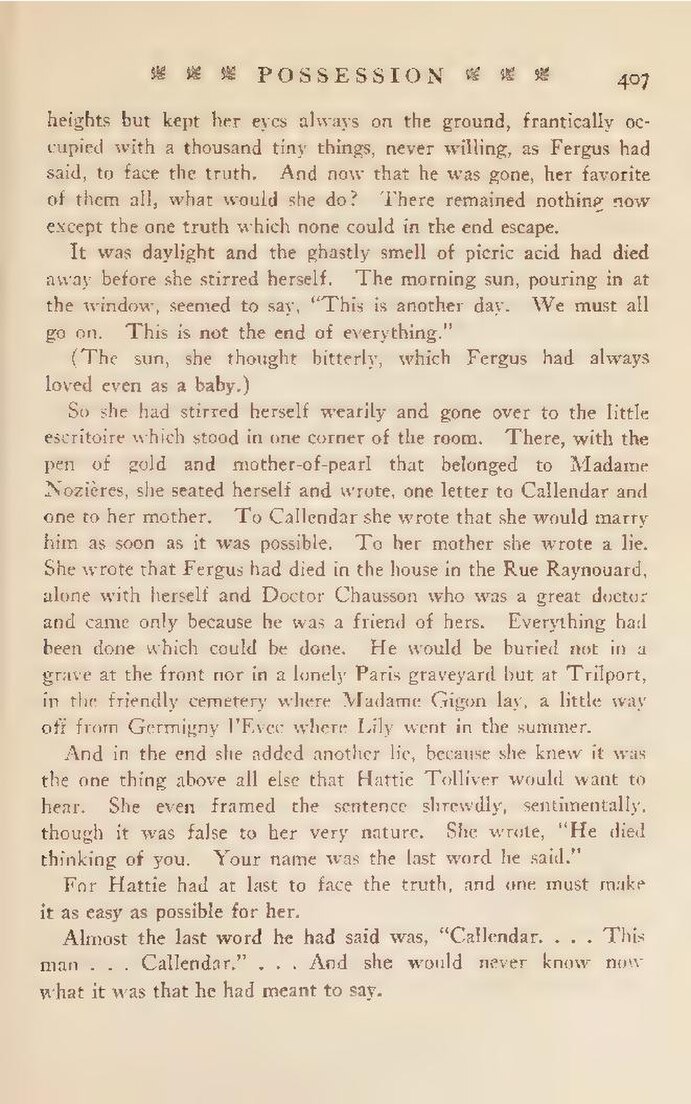heights but kept her eyes always on the ground, frantically occupied with a thousand tiny things, never willing, as Fergus had said, to face the truth. And now that he was gone, her favorite of them all, what would she do? There remained nothing now except the one truth which none could in the end escape.
It was daylight and the ghastly smell of picric acid had died away before she stirred herself. The morning sun, pouring in at the window, seemed to say, "This is another day. We must all go on. This is not the end of everything."
(The sun, she thought bitterly, which Fergus had always loved even as a baby.)
So she had stirred herself wearily and gone over to the little escritoire which stood in one corner of the room. There, with the pen of gold and mother-of-pearl that belonged to Madame Nozières, she seated herself and wrote, one letter to Callendar and one to her mother. To Callendar she wrote that she would marry him as soon as it was possible. To her mother she wrote a lie. She wrote that Fergus had died in the house in the Rue Raynouard, alone with herself and Doctor Chausson who was a great doctor and came only because he was a friend of hers. Everything had been done which could be done. He would be buried not in a grave at the front nor in a lonely Paris graveyard but at Trilport, in the friendly cemetery where Madame Gigon lay, a little way off from Germigny l'Evec where Lily went in the summer.
And in the end she added another lie, because she knew it was the one thing above all else that Hattie Tolliver would want to hear. She even framed the sentence shrewdly, sentimentally, though it was false to her very nature. She wrote, "He died thinking of you. Your name was the last word he said."
For Hattie had at last to face the truth, and one must make it as easy as possible for her.
Almost the last word he had said was, "Callendar. . . . This man . . . Callendar." . . . And she would never know now what it was that he had meant to say.
